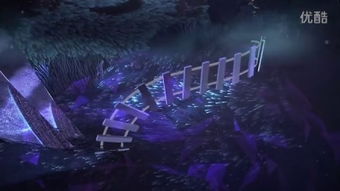Content:
Introduction: Fishing, an ancient pastime that has stood the test of time, offers a unique blend of relaxation, adventure, and the thrill of the catch. Whether you are a seasoned angler or a beginner looking to cast your line into the unknown, mastering the art of fishing can elevate your experience to new heights. In this article, we will delve into the essential tips and techniques that will help you discover the joys of fishing and improve your chances of landing that big one.
Choosing the Right Equipment: The first step in mastering the art of fishing is to ensure you have the right equipment. Here are some key items to consider:
- Rod and Reel: Select a rod and reel that match the type of fishing you plan to do. For freshwater fishing, a spinning rod and reel are versatile and suitable for most species. For saltwater fishing, a baitcasting rod and reel might be more appropriate.
- Line: The type of line you use depends on the fish you are targeting. Monofilament is a good all-purpose line, while fluorocarbon is nearly invisible underwater and ideal for targeting wary fish.
- Lures and Bait: Choose lures and bait that mimic the natural prey of the fish you are targeting. Research the habits and preferences of the fish species in your chosen fishing spot.
Understanding the Fish: To be successful at fishing, it's crucial to understand the behavior and habits of the fish you are trying to catch. Here are some tips:
- Study the species: Learn about the feeding patterns, preferred habitats, and migration habits of the fish you want to catch.
- Observe the environment: Pay attention to the water temperature, clarity, and vegetation. These factors can significantly impact fish behavior.
- Timing is everything: Fish are more active during certain times of the day, such as early morning or dusk. Adjust your fishing schedule accordingly.
Casting Techniques: Casting is a fundamental skill in fishing. Here are some tips to improve your casting technique:

- Practice your grip: Hold the rod with a comfortable grip, ensuring you have control over the line.
- Learn the backcast: Start by practicing the backcast, which involves bringing the rod back and then forward to launch the line.
- Master the forward cast: Combine the backcast with a forward cast to send your lure or bait to the desired location.
- Adjust for wind: Wind can affect your casting. Learn to cast into the wind and use the wind to your advantage.
Reading the Water: Reading the water is an essential skill that can make the difference between a successful day and a frustrating one. Here's how to do it:
- Look for signs: Observe the surface of the water for signs of fish activity, such as ripples, bubbles, or fish jumping.
- Pay attention to structure: Identify natural or artificial structures in the water, such as rocks, logs, or weed beds, which can be prime fishing spots.
- Use a fishfinder: If available, a fishfinder can help you locate fish and understand their distribution in the water column.
Patience and Persistence: Fishing is a game of patience. Here are some tips to keep you motivated:
- Be prepared for long periods without a bite: Fishing can be unpredictable. Stay focused and patient, as the best catches often come after extended periods of waiting.
- Adapt to the situation: If you're not having luck, don't be afraid to change your approach. Try different lures, locations, or techniques.
- Enjoy the experience: Remember that fishing is about more than just catching fish. Embrace the tranquility and the beauty of nature.
Conclusion: Discovering the art of fishing is a journey that combines skill, knowledge, and a deep appreciation for the natural world. By following these tips and techniques, you'll be well on your way to becoming a proficient angler. Whether you're after a serene day on a tranquil lake or a thrilling adventure on the open sea, the world of fishing awaits with endless possibilities. Happy fishing!












